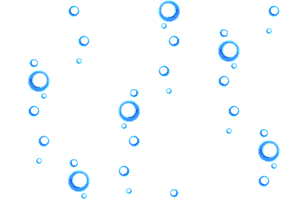
Academy of Underwater Arts & Sciences Presenter of the NOGI Award


2021 - Zale Parry Scholarship Recipient
Courtney Wheelock
Courtney Wheelock is currently a Ph.D. candidate at the University at Buffalo, studying environmental and hyperbaric physiology. She first began scuba diving at the age of 14 with her dad and has since continued to enjoy the sport and its amazing opportunities. Being introduced to the underwater world at such a young age inspired her in many ways. While attending Indiana University, she majored in exercise science and minored in chemistry and psychology. She continued her scuba training through the school’s Center for Underwater Science by earning a Certificate of Underwater Resource Management. While participating in a field research study in the Dominican Republic she was introduced to scientific diving, which ultimately inspired her to pursue a career combining her degree in exercise science with dive research.
Courtney enrolled in the graduate program at the University at Buffalo to study exercise science and human performance in special environments, with a focus in dive physiology and hyperbaric medicine. Here, she completed her Master’s thesis examining manual dexterity in cold water conditions. During her graduate career, she has been involved in multiple hyperbaric studies aimed at improving military dive performance and mission readiness. Her doctoral research focuses on the effects of warm water immersion and heat acclimation on performance in acclimated and unacclimated individuals. This research will also include recovery from warm water immersion exposures and rehydration strategies for improved post-immersion performance. Her research interests also involve the effects of hypobaria on performance as it relates to diving at altitude and rapid ascents to altitude.
She has continued her dive training by earning her Divemaster certification and intends to enroll in further courses in hyperbaric medicine. After earning her Ph.D., she plans to continue her research in hyperbaric physiology in a post-doctoral position. Her goal is to further the understanding of human underwater physiology and to contribute to guidelines that improve dive safety and performance for military, commercial, scientific, and recreational divers alike.

2020 - Zale Parry Scholarship Recipient
Olivia L.Thomas
Olivia Thomas is currently a Ph.D. student at Texas A&M University where she is studying anthropology with a specialization in nautical archaeology. Olivia grew up in a rural town in southern Indiana and attended Indiana University where she earned her Bachelor’s degree, majoring in anthropology, classical art & archaeology, and underwater archaeology, as well as minoring in medieval studies, and earning a certificate in underwater resource management. In order to major in underwater archaeology, designated as an “Individualized Major Program,” Olivia created her own curriculum and completed an undergraduate research project on artifacts discovered during a field school in the Dominican Republic. Olivia took her first scuba classes at IU and worked all the way through her Divemaster certification at the university. She worked at her local dive shop, Southern Indiana Scuba, and later became an instructor and technical diver.
Before graduating from college, Olivia taught scuba diving in the quarries of Indiana, Illinois, and Ohio for several months. She moved to the island of St. Croix, USVI, where she taught scuba diving and volunteered with the Nature Conservancy’s coral restoration project. While living in the Caribbean, Olivia gained a greater appreciation for not only the local culture and biodiversity, but cultural heritage management and heritage tourism.
Olivia left the Caribbean to enroll in East Carolina University to pursue her Master’s degree in maritime studies. Her Master’s thesis focused on foodways [the eating habits and culinary practices] artifacts from various shipwrecks of two eighteenth-century Spanish fleets. While at ECU, Olivia began presenting her research at international conferences and was inspired by two of her mentors to pursue her doctorate and teach at the collegiate level.
Olivia’s doctoral dissertation research focuses on the maritime cultural landscape of the island of St. Croix, USVI, during the eighteenth century. Her research will include shipwrecks, land remains, natural havens, and areas of traditional use related to the maritime culture and history of the island. Her research interests also include coastal and island archaeology, life on board ships, the maritime culture and history of the Atlantic world, material culture of eighteenth-century shipwrecks, iconography of maritime culture during the age of sail, and the lives of women on board whaling ships.
With a career goal of teaching anthropology courses at a college or university where she can also conduct research and mentor her students, she is very passionate about multidisciplinary research projects and creating opportunities for students to get hands-on experience. Olivia’s love for the ocean and the water is not limited to culture and archaeology; she is a passionate supporter of wildlife and environmental protection organizations.
“
Dr. Peter Lindholm is the 2018 recipient of the AUAS/DAN Diving Medicine Scholarship in support of his research project “Nitrogen gas uptake in breathhold diving.”
Peter Lindholm MD, PhD is Associate Professor of Physiology at Karolinska Institutet and Senior Consultant in thoracic radiology at Karolinska University Hospital in Stockholm, Sweden. His research field is the pulmonary system with special focus on diving.
He has studied humans in severe hypoxia and the mechanisms of loss of consciousness to improve safety in breathhold diving. Dr. Lindholm has shown that breathhold diving after fasting or heavy exercise facilitates holding one’s breath until loss of consciousness, which can explain some drowning accidents. Peter has also studied respiratory muscle training for divers and glossopharyngeal breathing (lung packing) to improve lung function in both competitive breathhold divers and patients with spinal cord injuries. He has studied pulmonary edema from lung compression and described tracheal squeeze from deep breath-hold diving as explanations for bleeding lungs after diving. He now proposes to further study lung function and lung compression in breathhold divers.

2018 - Diving Medicine Scholarship
Dr. Peter Lindholm
